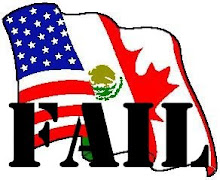According to some online sources, including Cyrus Mehta (a US Immigration lawyer), the following occurred:
On one fateful day, January 11, 2010, when Continental Airlines Flight 49 landed in Newark from Mumbai, India, we know that [a CBP officer] and his colleagues, hunted through the lines for Indian H-1B workers even before they showed up for primary inspection. Their minds were made up. No detailed questions were asked. The moment they found Indian H-1B workers who uttered that they were working at a client site in the IT field, their fates were sealed. They were subjected to expedited removal orders and sent back to India. Some were luckier and escaped the ER order, but still had to withdraw their applications for admission to the U.S. Nevertheless, they were all coerced into making statements under threat of being detained. CBP officials also made remarks as to why the H-1B workers, singled out for deportation, earned more than U.S. workers and should not be paid so much.
What would instigate such severe scrutiny of Indians holding US-approved visas in their passports? And why should other countries care?
On January 8, 2010, a memorandum was sent from Donald Neufeld, Associate Director for Service Center Operations within the USCIS. You can read a copy of the memorandum here.
The purpose of the memo was…
…intended to provide guidance, in the context of H-1B petitions, on the requirement that a petitioner establish that an employer-employee relationship exists and will continue to exist with the beneficiary throughout the duration of the requested H-1B validity period.
I’ll provide links at the end of this post to some articles that go in depth to explain the contents of the memorandum, but in a nutshell it was directing officers to scrutinize whether an H-1B’s petitioner truly has the right to control and that an employer-employee relationship exists.
The straight-forward situation is between an employer and employee: a company wants to sponsor a foreign worker for an H-1B visa, and that worker will become an employee of the employer.
But there’s another situation that involves three parties instead of two:
Petitioner – This is usually the employer of the individual who will actually hold the visa.
Beneficiary– The individual who will be performing work, an employee of the Petitioner.
Client – The entity that has made an agreement with the Petitioner to have the Beneficiary come and perform work at their location.
In this scenario, the Client is not the employer of the Beneficiary. Even if the Beneficiary is going to be working as part of a team made up of people from the Client, its the Petitioner that ultimately has control over the Beneficiary. And thus lies the problem: since the Petitioner isn’t overseeing the day to day work of the Beneficiary, the Petitioner does not have the right to control over when, where, and how the Beneficiary performs the job. For the H-1B to be valid, the Petitioner’s right to control must be established.
The memorandum I linked to above contains examples showing what would/would not present a valid employer-employee relationship, but I want to briefly mention the ones that don’t apply:
Self-Employed Beneficiaries
The thought here is that if you are your own boss, nobody *really* has any control over you while you’re in the US; you can’t be your own master.
Independent Contractors
Just because you’re contracted to one organization doesn’t mean you couldn’t also be contracted to another. Ergo, the Petitioner doesn’t have the right to control you.
3rd Party Placement/ “Job Shops”
A company needs a software developer for a project their working on. Your company contracts you out to them to fill the need. While you’d you be working there, you’d report to the client’s project manager and they would be directing you in your day to day working tasks. You see where this is going: the client is exercising the right to control, not your employer (who would be the petitioner as well).
Interesting spins on foreigners working in the US isn’t it?
But it begs the question: with the US placing more restrictions on foreign workers and with harsh punishments that unknowing employees could be subject to (that “expedited removal” process mentioned earlier carries with it a 5 year ban on entering the US), what incentive is there for us to even try?
Reference Links
Cyrus D. Mehta Blog
Nation of Immigrators Blog
Jan 8 2010 USCIS Memorandum



